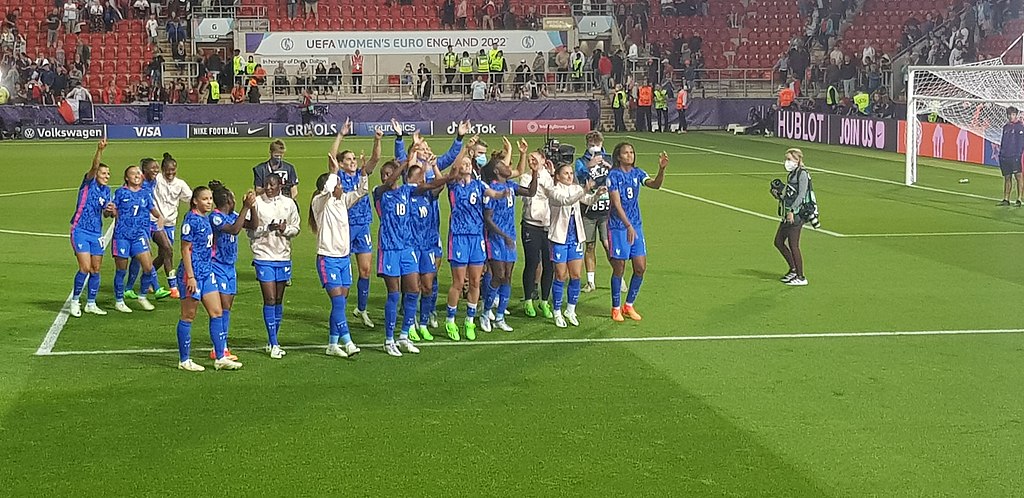
Across the Atlantic, women’s sports are drawing in the masses.
One especially noteworthy game occurred this past weekend, when England’s women’s team won the UEFA European Women’s Championship for the first time in the competition’s 40-year history.
That wasn’t the only record set on Sunday – it was also one of the most well-attended soccer games of 2022 thus far, including all men’s soccer matches that have taken place. Over 87,000 people packed into London’s Wembley Stadium to see the historic finale.
The only two games with larger audiences this year were also women’s matches. Professional club FC Barcelona, often known simply as Barca, drew in crowds of more than 91,000 fans for quarterfinal and semifinal matches of the Women’s Champions League. One of those games, which drew in 91,648 fans, was a record-breaker for women’s soccer in general.
Sunday’s match, though, was an encouraging capper to a tournament that enjoyed record-breaking ticket sales throughout. More than 450,000 of them had already been sold to eager fans mere days after the championship began, making it Europe’s biggest women’s sporting event ever.
This groundswell of interest and attendance comes thanks, in part, to the Football Association’s 2017 Gameplan for Growth, which saw an investment of millions of pounds into expanding general participation in women’s soccer. Within 4 years of implementation, its goals were met.
There is still room for improvement, though, especially on the part of the Association. The sports governing body woefully underestimated attendance in the games, and booked several inadequately sized stadiums in 2018 as a result, The Guardian reported. Moreover, representation for women players of color has declined, women commentators still suffer abuse, and gender pay parity still has not been achieved.
But the uptick in engagement with women’s soccer is encouraging for the future of the sport all the same – and its players want to see that momentum continue.
Ella Toone, who played for England in the championship and plays for Manchester United’s women’s team, told The Guardian that “a lot of people have fallen in love with women’s football this summer,” and she hopes that “the crowds that we’ve had … can get into our grounds at club level, and some more fans at the stadium [could come] on the journey with us.”
Ultimately, Toone added, “all we wanted to do was inspire the next generation – and we have done” that. The next step, she adds, is for women’s football to get “bigger and bigger.”



